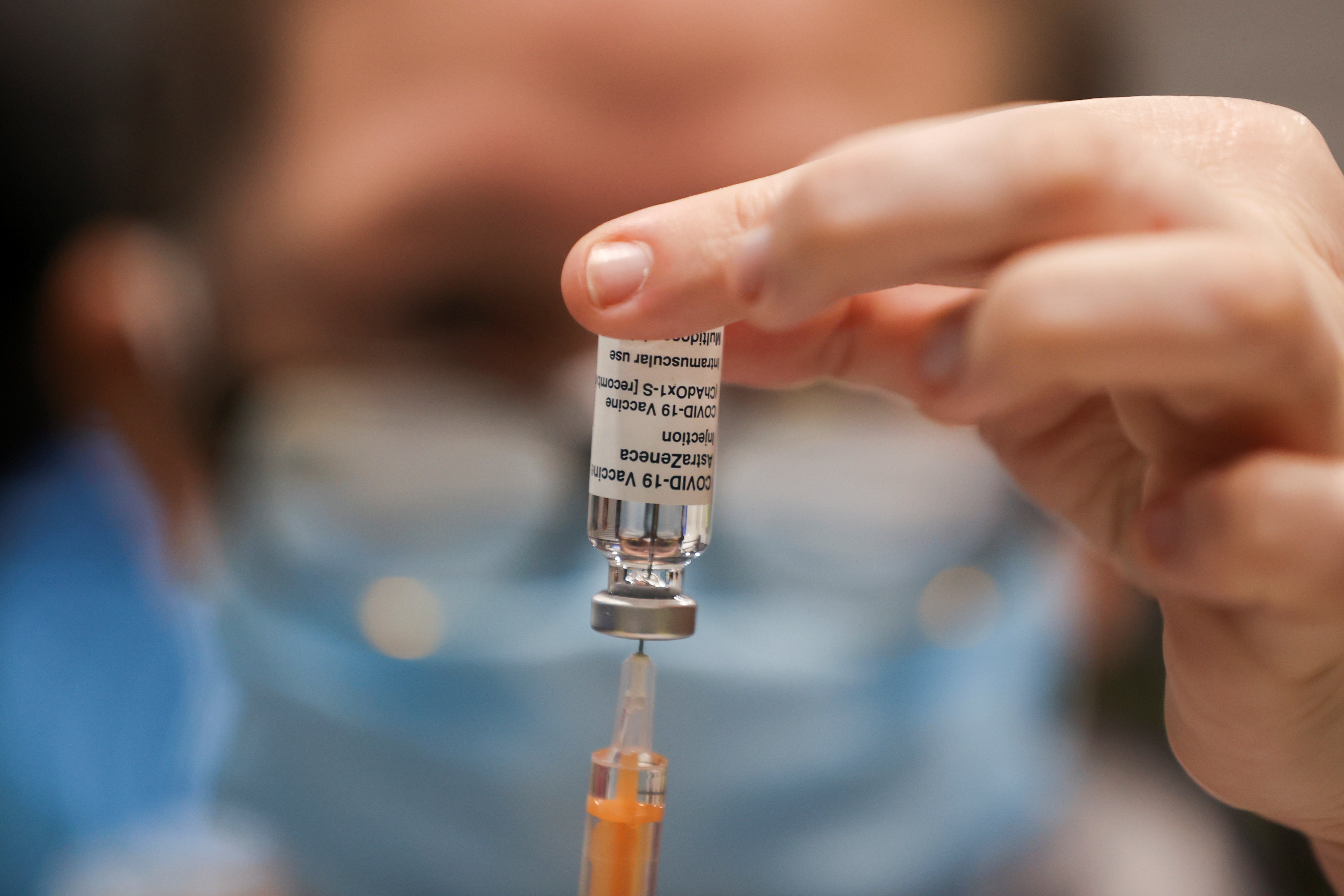Astrazeneca to supply nine million more Covid vaccine doses to EU, Von der Leyen says
European Commission president says pharmaceutical giant will expand its manufacturing capacity in bloc

Pharmaceutical company AstraZeneca has agreed to supply nine million additional doses of its coronavirus vaccine to the European Union during the first quarter, the bloc's executive branch said on Sunday.
The new target of 40 million doses by the end of March is still only half what the British/Swedish company had originally aimed for, triggering a spat between AstraZeneca and the EU last week.
Speaking after a call with seven vaccine makers on Sunday, European Commission President Ursula von der Leyen said that AstraZeneca would also begin deliveries one week sooner than scheduled and expand its manufacturing capacity in Europe.
Ms Von der Leyen, who has come under intense pressure over the European Commission's handling of the vaccine orders in recent days, tweeted: "Step forward on vaccines."
The EU is far behind Britain and the United States in getting its population of 450 million vaccinated against the virus.
The slow rollout has been blamed on a range of national problems as well as delayed approval of the vaccines compared to elsewhere and an initial shortage of supply.
The announcement last week that AstraZeneca would initially only supply 31 million doses to the EU's 27 member states due to production problems triggered a fierce dispute between the two sides, with officials in Brussels saying they feared the company was treating the bloc unfairly compared to other customers, such as the United Kingdom.
On Friday, hours after regulators authorised the vaccine for use across the EU, the commission announced that it was tightening rules on exports of Covid-19 vaccines, sparking an angry response from Britain.
The commission has since made clear that the new measure will not trigger controls on vaccines shipments produced in the 27-nation bloc to Northern Ireland.
Under the post-Brexit deal, EU products should still be able to travel unhindered from the bloc to the region.
EU member states praised the bloc's executive branch last year for signing numerous deals with vaccine makers, saying the joint purchase using combined market weight of the entire bloc had ensured a fair distribution for all 27 countries at good prices.
In a statement, the European Commission said it planned to set up a specialised body to improve the bloc's response to health emergency and "deliver a more structured approach to pandemic preparedness".
As part of the effort, together with industry, the EU said it would "fund design and development of vaccines and scale-up manufacturing in the short and medium-term, and also to target the variants of Covid-19."
"The pandemic highlighted that manufacturing capacities are a limiting factor," it said. "It is essential to address these challenges."
Press Association
Join our commenting forum
Join thought-provoking conversations, follow other Independent readers and see their replies
Comments


Bookmark popover
Removed from bookmarks